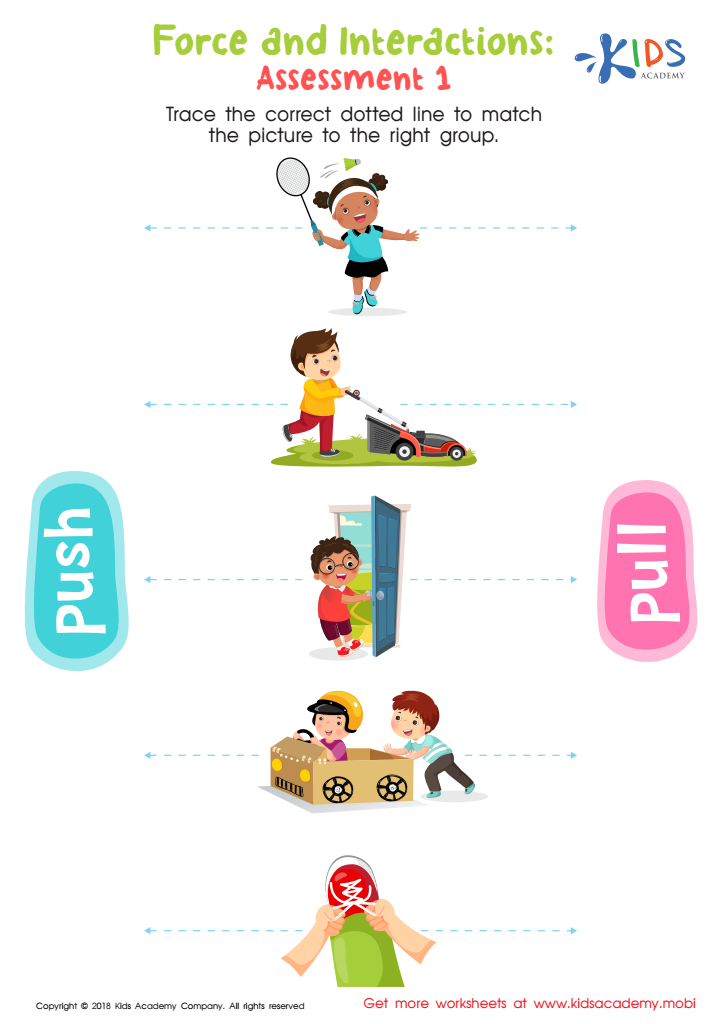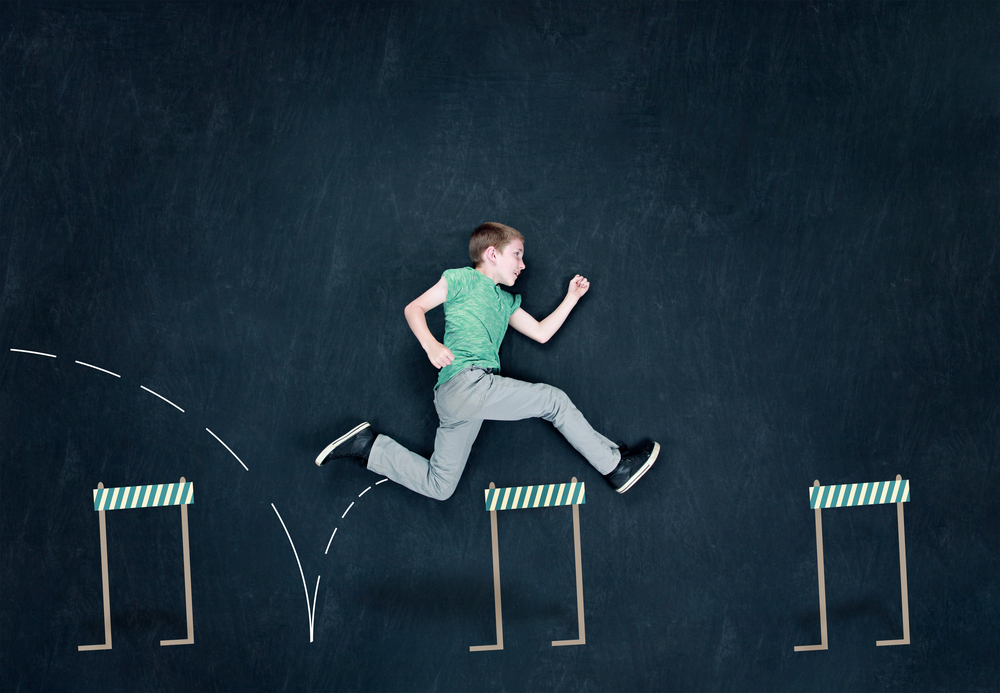Fun and Engaging Kindergarten Physical Science Worksheets: Knowledge Check Activities for Young Learners
2 filtered results
-
From - To


Force and Interactions: Assessment 2 Worksheet


Force and Interactions: Assessment 1 Worksheet
Physical Science worksheets activities for Kindergarten offer a myriad of benefits that go beyond mere academic learning. These engaging and hands-on activities serve as foundational building blocks for young learners, introducing them to the fascinating world of physical science. At such a critical developmental stage, incorporating Physical Science worksheets activities for Kindergarten into the curriculum can spark curiosity, foster a love for learning, and develop critical thinking skills.
One of the primary advantages of Physical Science worksheets for this age group is the introduction of basic scientific concepts in a simplified and engaging manner. Concepts such as gravity, motion, states of matter, and energy are explored through fun and interactive worksheets. These activities make complex ideas more accessible and understandable for young minds, setting a solid foundation for future scientific study and exploration.
Moreover, Physical Science worksheets activities for Kindergarten encourage the development of observation and problem-solving skills. As children engage with the worksheets, they learn to observe the world around them, ask questions, and seek answers. This process not only enhances their scientific knowledge but also hones their critical thinking and reasoning abilities, skills that are invaluable throughout their educational journey and beyond.
In addition to cognitive benefits, these worksheets also support the development of fine motor skills. Many Physical Science activities require children to cut, glue, color, and write, activities that improve hand-eye coordination and dexterity. This makes them not just beneficial for learning science but also for overall physical development.
In conclusion, Physical Science worksheets activities for Kindergarten are an essential tool in early childhood education. They make learning exciting and interactive, helping children to develop a strong foundation in scientific principles, critical thinking, and physical skills. By incorporating these activities into the curriculum, educators can ensure that children are well-prepared for the challenges of the future, fostering a lifelong love of learning and discovery in the process.

 Assign to the classroom
Assign to the classroom
.jpg)











